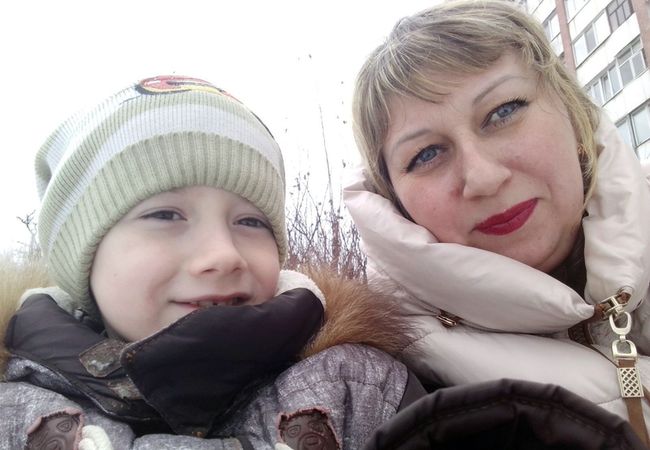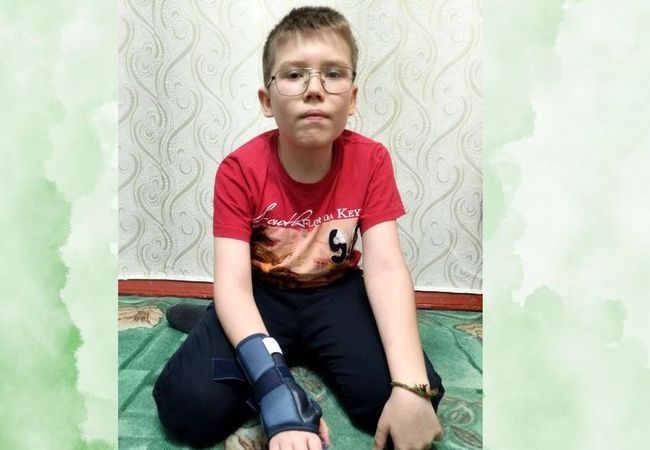
"Sivka-Burka, dun horse, magic horse! Come when I call."
UNICEF estimates that there are over 800,000 orphan children in Ukraine.[1]
ThatŌĆÖs enough children to fill a major city like San Francisco (the 13th most populous city in USA). ThatŌĆÖs also more orphan children in Ukraine than there are people in Detroit.
9 in 10 of these children are ŌĆ£social orphansŌĆØ ŌĆö children who were abandoned by alcoholic or abusive parents, parents who are too poor, or parents who were sent to prison.
Adoption is one of the few ways an orphan gets out of the system. But the pressure on the ŌĆ£adoption solutionŌĆØ is immense. Only 1 in 4 children (of the 120,000 children in care) are legally adoptable, and these even include children who are ŌĆ£hard-to-placeŌĆØ because of their age or the apparent severity of a disability or illness.[2]
However, even though there are 25,000 children available for adoption nationally, the total adoptions (domestic and inter-country) is only less than 4,000 annually.
What happens to the majority of the children who arenŌĆÖt adopted? The remaining children over 7 years of age (over 85%) have no option other than to spend their childhood in institutional care, and subsequently ŌĆ£graduateŌĆØ to a forced and ill-prepared adult autonomy.
How effective is institutional care, since thatŌĆÖs where most orphans end up?
In the Soviet rule under the Bolsheviks, it became social policy (ŌĆ£detdomŌĆØ) to institutionalize disabled and abandoned children. It was believed that children reduced a womanŌĆÖs productivity, and that state-run orphanages would offer better care than families.
They believed that giving up the children to the state would free mothers to work and increase the nationŌĆÖs productivity. As a result, putting disabled children away in orphanages became the norm; separate social support services for families did not take root.
To make matters worse, the desperate famines of 1921-22 and 1932-33 made staggering numbers of children homeless. State-run ŌĆ£homesŌĆØ served as a necessary depository for these ŌĆ£orphans.ŌĆØ When Ukraine declared independence in 1991, the deeply rooted ŌĆ£detdomŌĆØ system of the Soviet era (in which neglect seemed almost a policy) remained intact.
Kalinovka orphanage is one of the victims of this neglectful policy. And since it is isolated in the rural steppe and removed from public scrutiny, it became one of the worst.
Can orphans who donŌĆÖt get adopted also have a Fairy Tale ending?
Albert Pavlov and the Happy Child Foundation believe so.
I met Albert in 2011 when I visited Kalinovka orphanage. Albert had left his job as a computer programmer to create the Happy Child Foundation, and he now dedicates his life to improving the lives of orphans and seriously sick children in Ukraine.
Happy ChildŌĆÖs latest and most ambitious project is to create a ChildrenŌĆÖs Village in the Zaporozhye province. It will serve as a better (and sustainable) alternative to ŌĆ£warehousingŌĆØ children in state-run orphanages.
Here, foster families live together in the same rural environment, enabling them to help each other nurture and educate children. The main purpose is a comprehensive intellectual, emotional and psychological development for orphans, to support social integration and independence through adulthood.
But how can we know if this program will succeed? Because it already has.
Although this is will be the first program of its kind in the Ukraine, there is already a successful model in Russia ŌĆō Kitezh, an experimental orphan community 190 miles southwest of Moscow.

Children painting a table
ŌĆ£If we can, we try to create the atmosphere of a fairy tale,ŌĆØ said Mikhail S. Shchurav, who has lived at Kitezh for three years and has an adopted son. ŌĆ£Fairy tales help these kids forget what theyŌĆÖve been through.ŌĆØ
The founders of Kitezh hope that their village can be a model of reform for RussiaŌĆÖs decrepit child welfare system, little changed since Soviet days.

Children in a role-playing exercise in Kitezh, a revolutionary community for orphans and fosters
The experiment has yielded notable results. Since 1992, 80 children have lived in Kitezh; 60% have gone on to higher education, all have found good jobs; some are doing their military service, and some others are having children of their own.
Vasily V. Burdin spent four years in an orphanage after his parents died from complications related to alcohol abuse when he was 4. He said he was treated fairly well there, but gained ŌĆ£an understanding of the worldŌĆØ only when he moved to Kitezh.
With almost fluent English picked up from British students who at times volunteer in the village, Vasily, now 18 and enrolled in a Moscow law university, described his struggle to overcome his past, and ŌĆö something few Russian orphans have ŌĆö his hopes for the future.
ŌĆ£I will proceed with law for my business, for my career,ŌĆØ he said. ŌĆ£But after I have stability, I will do something with music ŌĆö maybe open my studio. ItŌĆÖs a dream.ŌĆØ
The children who live there study, work and eat together, and live in private homes with their adoptive parents, who are also trained teachers, psychologists and medical personnel.

Children celebrating a birthday party!
And nowŌĆ” a revolutionary Fairy-Tale village for orphans in UkraineŌĆ” begins!
After AlbertŌĆÖs visit to Kitezh in 2010, he returned inspired and with important insights into the success of Kitezh village. It became his mission to create the first ŌĆ£Happy Child ChildrenŌĆÖs VillageŌĆØ in Ukraine

The first Happy Home: a 100-year old building restored and renovated with support from 6 countries, is now a home to special needs children
In December 2011, he constructed the first ŌĆ£Happy HomeŌĆØ using similar principles of family living, holistic development, social adaptation and independence.
But it is only the beginning. With no rest after opening the first Happy Home, Albert informed me that theyŌĆÖve already started repairs on a new building, which will be a home for 6 girls!

In the next few years, the Happy Child ChildrenŌĆÖs village will not only be the home for many orphans in the region ŌĆö it will pioneer an alternative system to state-run programs, and serve as a model for reform. The village may also host summer camps, therapeutic programs for emotionally troubled children and foreign volunteer programs.
How can you help make this Fairy Tale come true?
I met Albert in Ukraine last year. He is an amazing father and compassionate individual for orphan children and especially orphans with special needs. If it wasnŌĆÖt for him, I would never have found a little angel named Vanya who stole my heart:

Hi-5 Vanya! :)
The orphans in the first Happy Home and Kalinovka orphanage are special needs children. Right now, one caregiver can be responsible for 9-12 children. Since the children require special attention, the number of caregivers they have is barely sufficient to care for basic needs, let alone developmental needs. Because of this, they need to hire additional caregivers.
WeŌĆÖre looking for people who have a personal connection with (or special concern for) the special needs children in Ukraine, to help sponsor an additional caregiver for them. We are still finalizing the details with Albert; but one thing for sure is that we will be dividing the share of sponsoring one caregiver among many people, to reduce the burden.
So it doesnŌĆÖt matter if you feel you canŌĆÖt contribute muchŌĆö if this is something important to you and you want to make a permanent change in these childrenŌĆÖs lives; or if you want to bless these children with a guardian angel in the form of a caregiver ŌĆöplease get in touch with me right away. With the help of many, we can make a big difference together for the children. Send me a note at maya@mayashope.org with the subject ŌĆ£Kalinovka!ŌĆØ
Hugs,

Happy Child ChildrenŌĆÖs Village:
The first ŌĆ£Happy HomeŌĆØ of the ChildrenŌĆÖs Village
About Albert Pavlov, president of Happy Child
Kitezh:
NYTimes:
ŌĆ£In a Fairy-Tale Village, Russian orphans thriveŌĆØ



